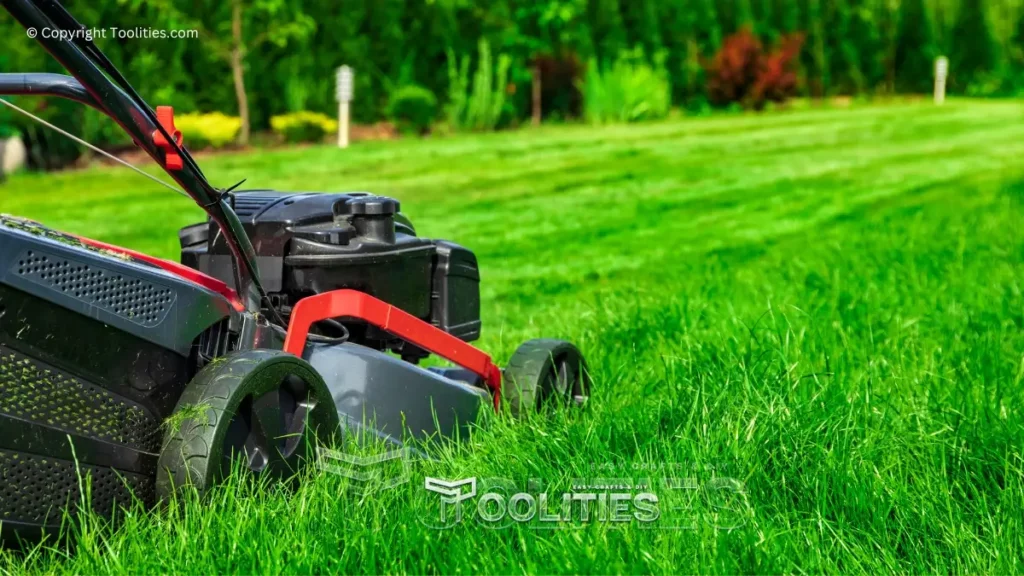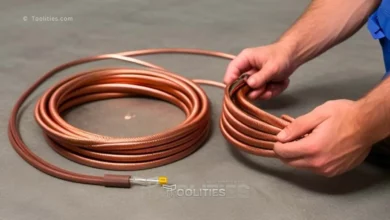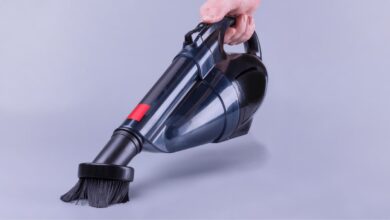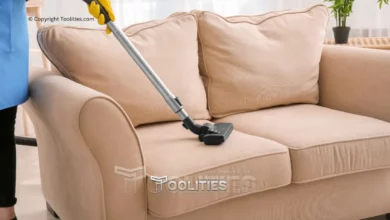6 Best DIY Projects for A Frugal Retirement
Retirement is a time to enjoy the fruits of your labor and embrace a more relaxed lifestyle. However, it's essential to maintain financial stability during this phase of life. That's where frugality comes into play. Discover fun and cost-effective DIY projects for a frugal retirement. Embrace your creativity and save money with our easy-to-follow guides.
Table of Contents
6 Best DIY Projects for A Frugal Retirement
By adopting a thrifty approach, you can stretch your retirement savings and make the most of your newfound freedom. One effective way to achieve this is by engaging in do-it-yourself (DIY) projects that not only provide a sense of accomplishment but also help you save money. In this article, we will explore a variety of DIY projects that are perfect for a frugal retirement.
1#. Creating a Self-Sustaining Vegetable Garden
Benefits of growing your own food
Incorporating a vegetable garden into your retirement routine offers numerous advantages. Not only does it provide a source of fresh, organic produce, but it also promotes a healthier lifestyle. Growing your own food allows you to reduce expenses at the grocery store while ensuring that you consume nutritious, homegrown ingredients.
Choosing the right location for your garden

Selecting an ideal spot for your vegetable garden is crucial. Look for an area in your yard that receives ample sunlight and has well-drained soil. Consider factors like proximity to a water source and protection from strong winds or pests.
Preparing the soil for optimal plant growth
Before you start planting, it's essential to prepare the soil properly. Remove any weeds or rocks and add organic matter such as compost or aged manure to enrich the soil. This will provide the necessary nutrients for healthy plant growth.
Selecting the right vegetables for your climate
Different regions have varying climates, which impact the types of vegetables that thrive. Research which vegetables are best suited for your particular climate, ensuring a higher chance of success. Consider factors such as temperature range, frost dates, and average rainfall.
Implementing sustainable watering techniques
Conserving water is not only environmentally friendly but also helps reduce your water bills. Consider installing a rainwater harvesting system or utilizing drip irrigation to minimize water waste and keep your plants adequately hydrated.
Composting and recycling to reduce waste
Composting is an excellent way to reduce waste and nourish your garden naturally. Set up a compost bin to collect kitchen scraps, yard waste, and other biodegradable materials. This homemade compost will provide rich nutrients to your plants, eliminating the need for store-bought fertilizers.
2#. Building a Solar Power System
Harnessing renewable energy for reduced utility costs
With rising energy prices, investing in a solar power system can be a smart financial decision for retirees. By harnessing the sun's energy, you can generate your electricity, significantly reducing or even eliminating your monthly utility bills.
Assessing your energy needs and determining system size
Before embarking on a solar power project, it's essential to evaluate your energy requirements. Analyze your average electricity consumption to determine the appropriate system size for your home. This will ensure that you generate enough energy to meet your needs.
Choosing the right solar panels and equipment
Selecting high-quality solar panels and equipment is crucial for optimal performance and long-term savings. Research reputable manufacturers and consult with solar energy professionals to find the most suitable products within your budget.
Installing the solar panels on your property
Proper installation of solar panels is vital for efficient energy production. Depending on your property's layout and orientation, determine the best location for mounting the panels. Consider factors like shade, roof angle, and structural integrity.
Connecting the system to your home's electrical grid
To make the most of your solar power system, you'll need to connect it to your home's electrical grid. This requires coordination with your utility company and the installation of an inverter to convert the solar energy into usable electricity for your household appliances. It's essential to follow local regulations and guidelines to ensure a safe and compliant installation.
Monitoring and maintaining the solar power system
Once your solar power system is up and running, it's important to monitor its performance regularly. Keep an eye on energy production, track your savings, and address any issues promptly. Additionally, conduct routine maintenance such as cleaning the panels and checking for any damage or debris that may affect efficiency.
3#. Upcycling Furniture and Home Decor

Exploring the benefits of upcycling
Upcycling is a creative way to transform old or discarded items into something new and useful. By repurposing furniture and home decor, you not only save money but also contribute to a more sustainable lifestyle. Upcycling allows you to express your unique style and create personalized pieces for your retirement home.
Sourcing affordable furniture and decor items
To begin your upcycling journey, look for affordable furniture and decor items in thrift stores, yard sales, or online marketplaces. These secondhand treasures can be transformed with a little creativity and elbow grease.
Repairing and refinishing old furniture
Before embarking on a refinishing project, assess the condition of the furniture. Repair any structural damage, such as loose joints or broken parts, to ensure stability. Then, sand and refinish the piece to breathe new life into it. Experiment with different techniques like distressing or staining to achieve the desired look.
Repurposing household items creatively
Think outside the box when it comes to repurposing household items. For example, an old ladder can be transformed into a unique bookshelf, or mason jars can become charming candle holders. Let your imagination run wild and find innovative ways to give new purpose to everyday objects.
Painting and decorating with eco-friendly materials
When upcycling furniture, opt for eco-friendly paints and finishes. Look for low or no VOC (volatile organic compound) options to minimize environmental impact. Experiment with different colors and techniques to add personality and charm to your upcycled pieces.
Showcasing your unique style through upcycled pieces
One of the joys of upcycling is the ability to showcase your personal style and create one-of-a-kind pieces that reflect your tastes. Whether you prefer a rustic farmhouse look or a sleek modern design, upcycling allows you to infuse your retirement home with your unique aesthetic.
4#. DIY Home Energy Efficiency Improvements
Reducing energy consumption for long-term savings
Improving the energy efficiency of your home not only helps reduce your carbon footprint but also lowers your energy bills. By implementing simple DIY projects, you can make your retirement home more sustainable and comfortable while saving money in the long run.
Conducting an energy audit of your home
Start by conducting an energy audit to identify areas where your home may be losing energy. Look for air leaks, insufficient insulation, or outdated appliances that may be consuming excessive energy. This evaluation will guide your energy efficiency improvements.
Weatherproofing windows and doors
Sealing gaps and cracks around windows and doors is an effective way to prevent drafts and conserve energy. Use weatherstripping or caulking to seal these areas and improve insulation. Consider installing double-glazed windows for enhanced energy efficiency.
Insulating your home to retain heat or cool air
Proper insulation is key to maintaining a comfortable indoor temperature and reducing energy waste. Insulate your attic, walls, and floors to prevent heat transfer and retain warmth during winter or cool air during summer. Choose insulation materials that are eco-friendly and provide high thermal resistance.
Installing energy-efficient lighting and appliances
Replace traditional incandescent light bulbs with energy-efficient LED bulbs, which consume less electricity and last longer. Upgrade old appliances, such as refrigerators, washing machines, and air conditioning units, with energy-efficient models that bear the ENERGY STAR label. These appliances are designed to consume less energy without compromising functionality.
Monitoring energy usage and adjusting habits
To further optimize energy efficiency, monitor your energy usage and identify areas where you can make adjustments. Turn off lights and appliances when not in use, utilize natural light whenever possible, and make a conscious effort to conserve water and electricity. Small changes in daily habits can add up to significant energy savings over time.
5#. Creating Homemade Cleaning Products
Benefits of making your own cleaning products
Commercial cleaning products can be expensive and often contain harsh chemicals that may be harmful to both your health and the environment. By making your own cleaning products, you can save money, control the ingredients, and promote a healthier living environment.
Essential ingredients for homemade cleaners
Many common household items can be used as ingredients for homemade cleaners. Stock your pantry with items such as vinegar, baking soda, lemon juice, hydrogen peroxide, and essential oils. These natural ingredients are effective in cleaning and disinfecting various surfaces.
DIY recipes for all-purpose cleaners
Create your own all-purpose cleaner by mixing vinegar, water, and a few drops of your favorite essential oil. This simple solution can be used to clean countertops, floors, windows, and more. Experiment with different ratios and scents to find the perfect combination for your cleaning needs.
Natural solutions for specific cleaning tasks
For specific cleaning tasks, there are natural solutions available. For example, baking soda can be used as a scrub for tough stains or as a deodorizer for carpets and upholstery. Lemon juice mixed with water can remove stains and odors, while hydrogen peroxide acts as a powerful disinfectant.
Storing and organizing homemade cleaning products
Invest in reusable spray bottles, glass jars, or labeled containers to store your homemade cleaning products. Proper organization ensures easy access and prolongs the shelf life of your cleaners. Keep them in a designated area to streamline your cleaning routine.
Incorporating eco-friendly practices into cleaning routine
In addition to using homemade cleaners, adopt eco-friendly cleaning practices to further reduce your environmental impact. Use microfiber cloths instead of disposable paper towels, choose reusable mop heads, and opt for biodegradable cleaning brushes. By making conscious choices, you contribute to a more sustainable lifestyle.
6#. Building a Home Gym on a Budget
Importance of staying active in retirement
Maintaining an active lifestyle in retirement is crucial for both physical and mental well-being. Having a home gym allows you to exercise conveniently, stay fit, and enjoy the benefits of regular physical activity.
Identifying space for a home gym
Evaluate the available space in your home and identify an area that can be dedicated to your home gym. It can be a spare room, a corner of the basement, or even a portion of the garage. Assess the layout and ensure there is enough room for the equipment you plan to incorporate.
Essential exercise equipment for a basic setup
Start with a few essential pieces of exercise equipment to create a basic home gym setup. Consider items such as dumbbells, resistance bands, a yoga mat, and an exercise ball. These versatile pieces can facilitate a wide range of workouts and cater to different fitness levels.
DIY alternatives to expensive gym equipment
To save money, consider DIY alternatives to expensive gym equipment. For example, you can create homemade sandbags using old duffel bags filled with sand or rice. Use sturdy furniture like chairs or a table for step-ups or tricep dips. Be creative and find ways to mimic the functionality of traditional gym equipment with everyday items.
Creating a motivating and functional workout space
Design your home gym in a way that motivates and inspires you to exercise. Choose a color scheme that energizes you, hang motivational posters or artwork, and ensure proper lighting and ventilation in the space. Keep it organized and clutter-free to create a welcoming and functional environment.
Incorporating technology and online resources
Take advantage of technology and online resources to enhance your home workouts. There are numerous fitness apps, YouTube channels, and online workout programs available that provide guided workouts, exercise routines, and training plans. Utilize these resources to add variety and structure to your fitness regimen.
Conclusion
Retirement doesn't have to be a time of financial strain. By embracing a frugal mindset and engaging in DIY projects, you can make the most of your retirement years while saving money. From creating a self-sustaining vegetable garden to building a solar power system, upcycling furniture, improving home energy efficiency, making homemade cleaning products, and building a home gym on a budget, there are plenty of rewarding projects to undertake.
These projects not only contribute to your financial well-being but also allow you to express creativity, maintain an active lifestyle, and live sustainably. Embrace the joy of DIY and embark on these frugal endeavors to enhance your retirement experience.






